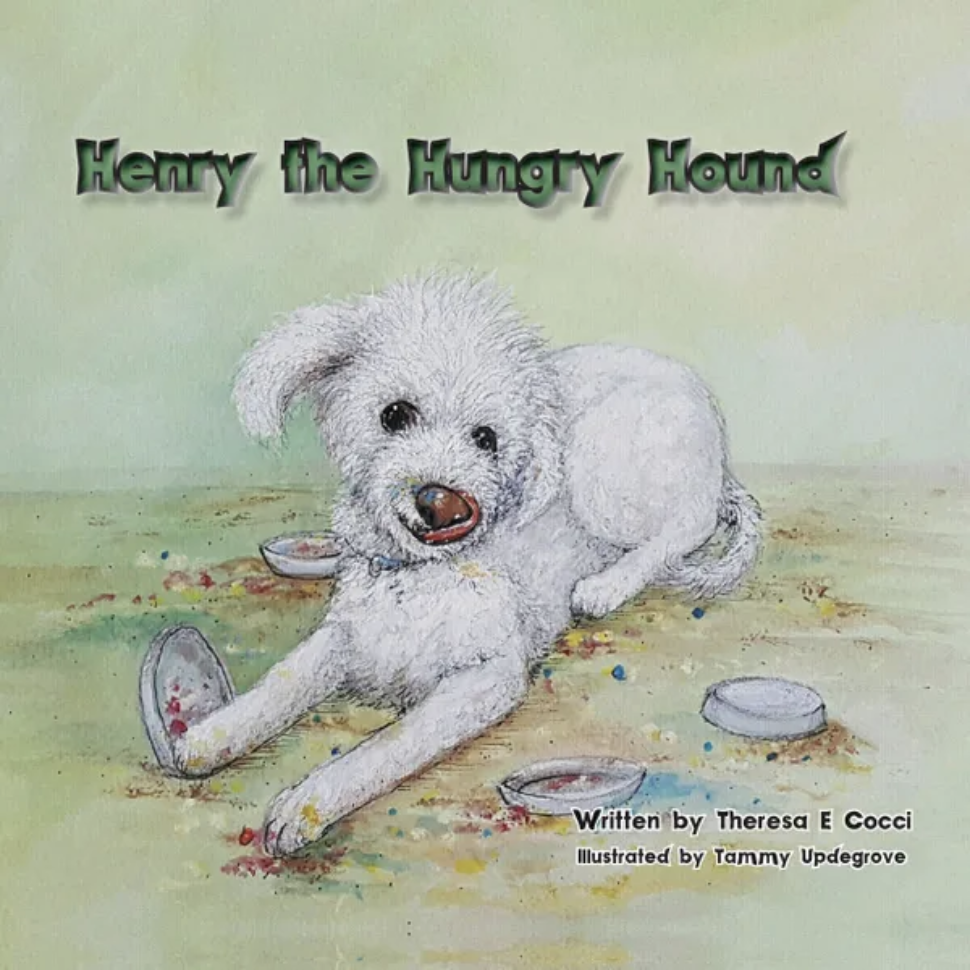
Lesson: Henry the Hungry Hound
Children’s Lit and Lessons that Fit:
Henry the Hungry Hound
My intent in presenting my recently released children’s book, “Henry the Hungry Hound” was the idea of pairing the message of kindness and creating interactive musical experiences for the students. As an Artist in Residence for two weeks meeting with each Kindergarten, First, and Second Grade class, lessons were formed that would reinforce the objectives below.
- Identify cued words in a story
- Perform those “special” words on instruments with others
- To identify kindness words and synonyms for kindness
- Create a rhythmic pattern with these words
- Play the created rhythmic patterns using UPP or body percussion
- Play pitched and unpitched percussion instruments which create sound effects to accompany the story
Synopsis for Henry the Hungry Hound
Discover how a kind old woman, whose love for baking and giving away her delicious pies, suddenly discovers that her plans may change. Could it be her mischievous but lovable pup named Henry silently waits to devour those pies? A final twist on the last pages reveals a silent partner, that encourages the young child to use their imagination and question Henry’s guilt.
Materials
- Henry the Hungry Hound story book
- Rhythm Chart
- Sound Bank Cards
- Recording device
Suggested Activities
- During the fist class with the Kindergarten, 1st and 2nd grades, while reading the book to the class, the students interacted by experimenting with voice inflections on the words, “Crash” and “Boom”, creating a fun sound effect for Henry the Hound’s destruction of the old woman’s delicious pies.
- Teaching the song, “Naughty Henry”, as an echo song, we added the “Crash, Boom” sound at the end of the first phrase.
- After the story was read, we discussed the kindness of the old woman and her problem-solving ideas
- The student’s ideas were written on the board and underlined words that related to kindness, such as caring, love, and giving for example
- We concluded with a kindness song below, clapping and tapping each letter of the word at the end of the song:
Let’s Be Kind in All We Do
(Tune: Oats, Peas, Beans)
Let’s Be Kind in All We Do
Give and Share the Whole Year Through
For every person big or small
We will help them one and all
(Some Kindness words we used)
Echo Clap: C-A-R-E, L-O-V-E, G-I-V-E
- The next class, working with just the second grade, we reviewed the story and discussed some of the kindness words we had used previously. On the smart board, I displayed a rhythm chart.
- Students chose a kindness word and put a letter in each column of the grid
- Students created a body percussion sound for each letter of that word.
eg) Clap: H-E-L-P
- We discussed how we could display a five-letter word in our grid.
eg) Tap: S-M-IL-E
- Students wrote a rhythmic icon for each letter:
- We also discussed the use of a quarter rest which created different patterns.
- Here is a sample of the students’ creations below.
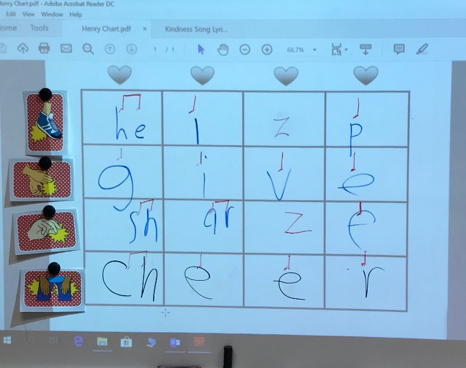
- Once the grid was filled with our kindness words, we then checked their creations by clapping and tapping through each pattern several times.
- The class then chose a sound bank card, which I had purchased on TPT. Each sound bank card was displayed next to the rhythmic pattern. (See above chart)
- We then recorded the “Let’s Be Kind” Song and chanted their rhythmic kindness creations at the end of the song.
- A recording was sent to each teacher to be used in the classroom as a kindness anthem for the class.
Henry the Hungry Hound Sound Story
Materials
Materials that we used to create the sound story were pitched and unpitched percussion instruments and the “Henry the Hungry Hound” storybook, recording device
Suggested Activities
Working with the Kindergarten and First Grade, we completed the activities below on the second visit
- Reread the story aloud to the students
- Discussed the sounds that were generated in the last class on the words, “Crash and Boom”.
- Introduced some additional cue words below:
Pies: (glissando from low to high on Soprano Xylophone)
Big ones and small ones: Soprano Xylophone and Soprano Glockenspiel
Rocking Chair: Guiro
Boom, Crash: Drum, cymbals
“Oh Henry, he’s eaten all my pies” – sung by all the students
Loved: Bell Tree
- Each student was assigned a percussion instrument and sat with their group.
- Students practiced their “cue” word sounds while watching the teacher for a “start” and “stop” hand signal.
- Teacher read the story again with the percussion instruments added on their “cue” words.
- For a big finish, all the students played simultaneously and ended with the teacher saying the words, “The End”. All playing stopped.
- A recording was sent to each teacher along with a book.
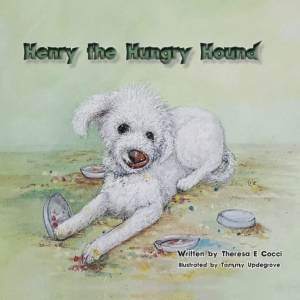
Reflections
Working with the music teacher during the two visits at the school, he was able to offer advice about each classes personality and how well they worked together. My preference of doing the activities as a “class” project worked better. At the end of class, each student who showed cooperation and respect were given a “Henry” card, (approved by the Principal), and added it to their bag of incentive cards that their teacher had given them in the past. Here is a sample of the cards students received:
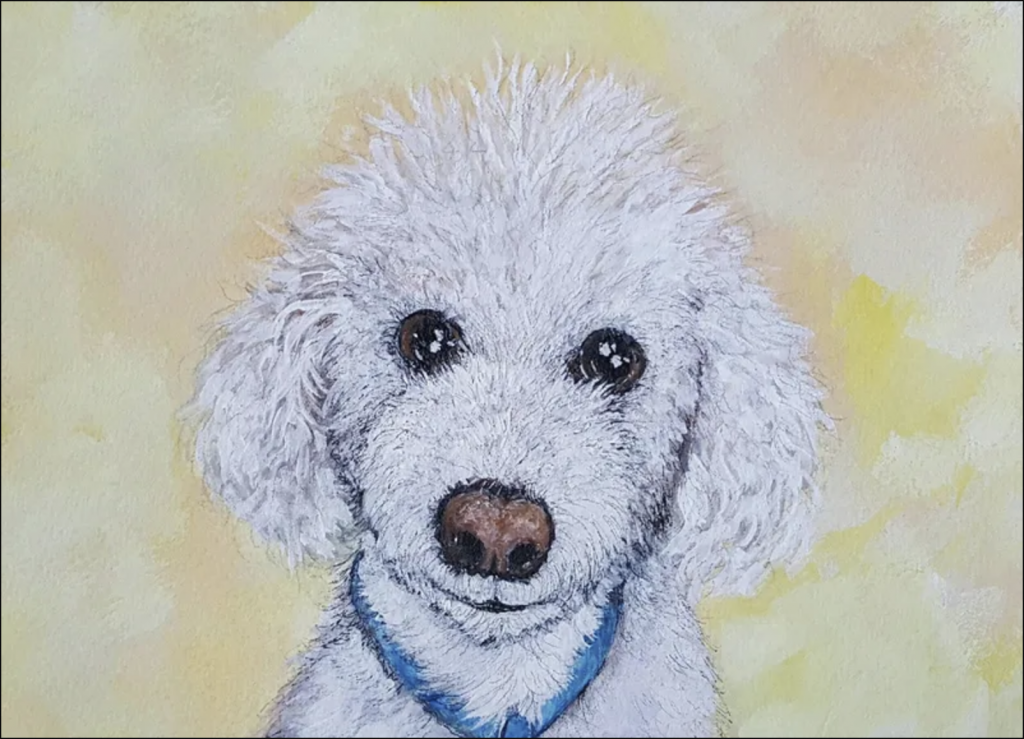
When I presented my lessons with my own classes, knowing their capabilities and how they worked together, we divided into groups for the Kindness Activity in the second grade. Performing their creations for the class, while respecting each other’s ideas, is a goal the we strived together to build as a team.
My hope that the message of kindness, which I so often see displayed in the halls of the schools, hopefully had been instilled through the activities of building upon the concept of teamwork during my visits.
See all posts by Theresa Cocci
7 Comments
Leave a Comment
Sign up for latest Orff Tips, Lesson Plans and Advocacy Tools
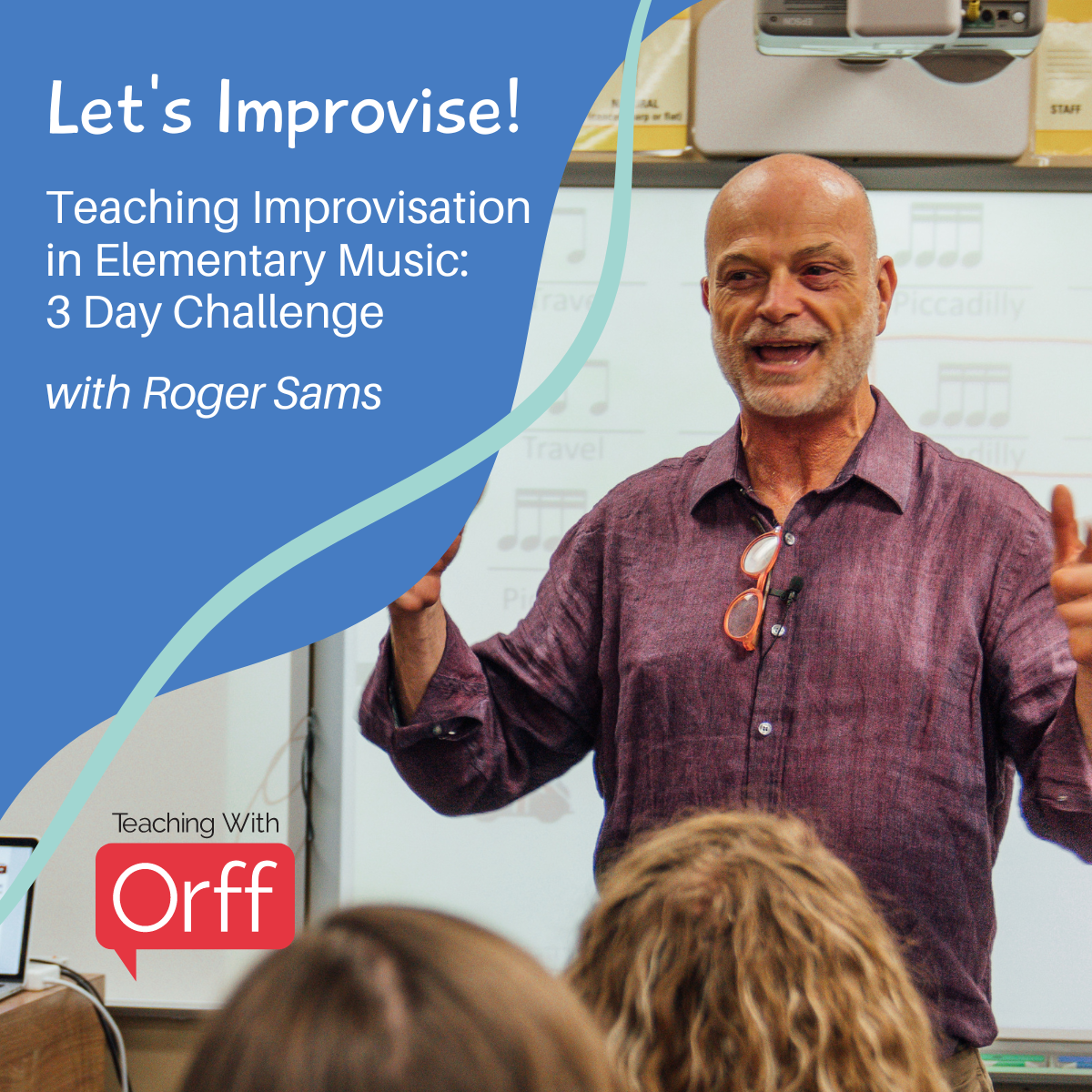
Empower your students to create their own music in this free 3-day challenge with Roger Sams. (Lessons delivered via email)

Learn about the legendary factory that started it all and why so many teachers like you love our instruments.
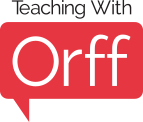
What a thorough plan! Music learning was included in an authentic way, not just as “window dressing” for the other elements. The literature, social emotional learning, music literacy, creativity, and message of the book were all incorporated in meaningful ways. I also appreciate the availability of the support materials for classroom use. I love the idea of making a recording for each classroom to keep! I’m looking forward to replicating this lesson with my students!
Hi Bonnie,
Thank you for your message. It is so exciting to hear that you will be incorporating the lessons and support materials in your classroom. Creating the sound story really empowered the students to be responsible for their own parts. When we created the body percussion for their “kindness” song, it was exciting to also see their creativeness. It was fun to see the “seriousness” of the students when I let them know when they were ready to “record” their final version. They couldn’t wait to share it with their classroom teacher.
I love this lesson! Thank you.
Thank you so much. I’m glad that you enjoyed the lesson!
I have a question.
I want to order the book for a SEL music lesson. Do I get the audio too?
This looks so sweet!
Let me know,
Susan
Hi Susan,
If you would like to order the audio as well, please check my website: theresacocci.org and I will turn off the fee.
Then you can listen to it and decide if the background accompaniments are sensory appropriate. Hope this will help. Thank you for your kind words!
Hi Susan,
You don’t necessarily need the audio. It does have some background accompaniment. Please let me know if this answers your question.